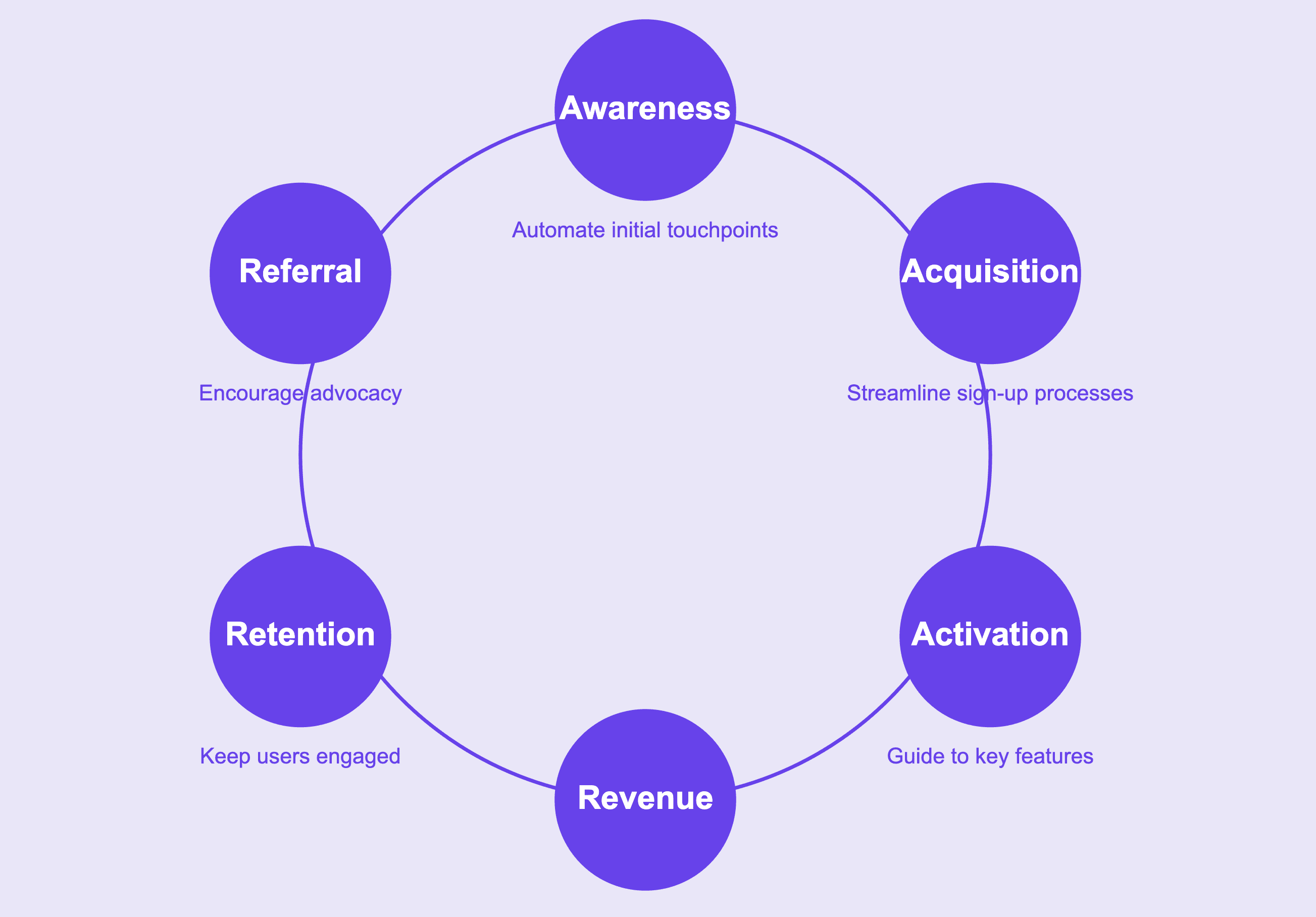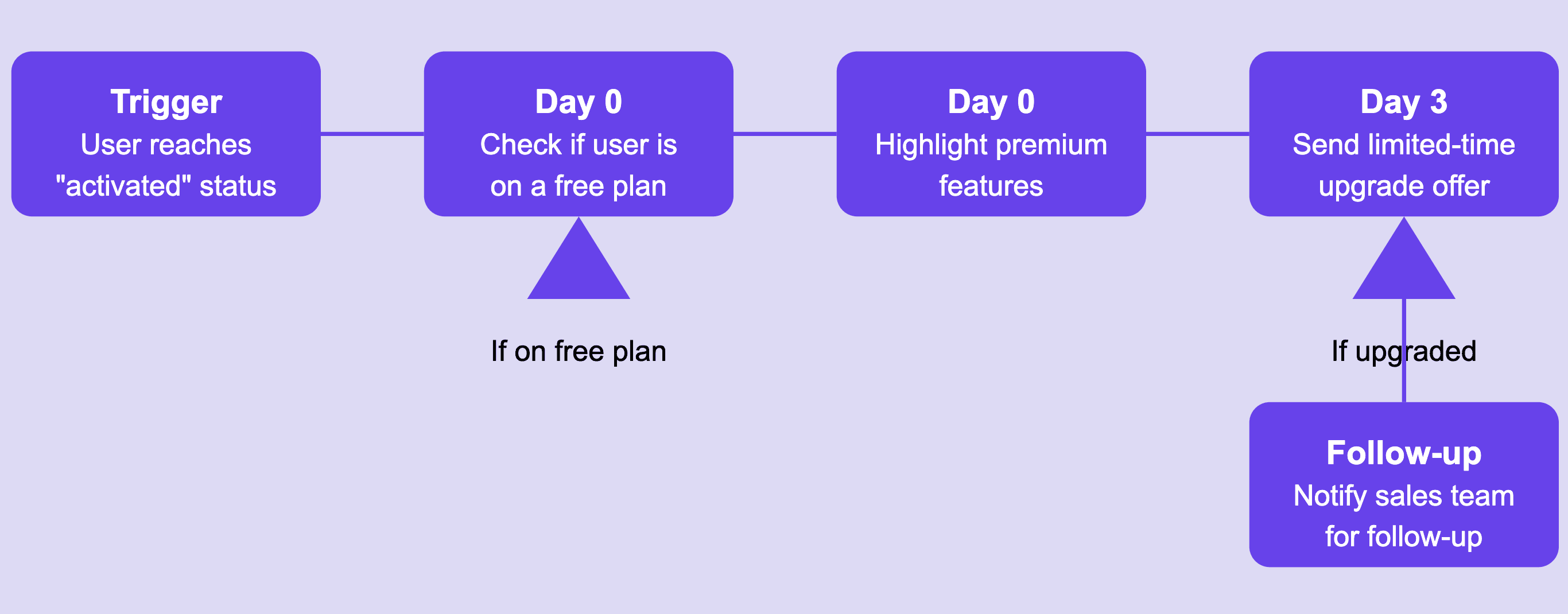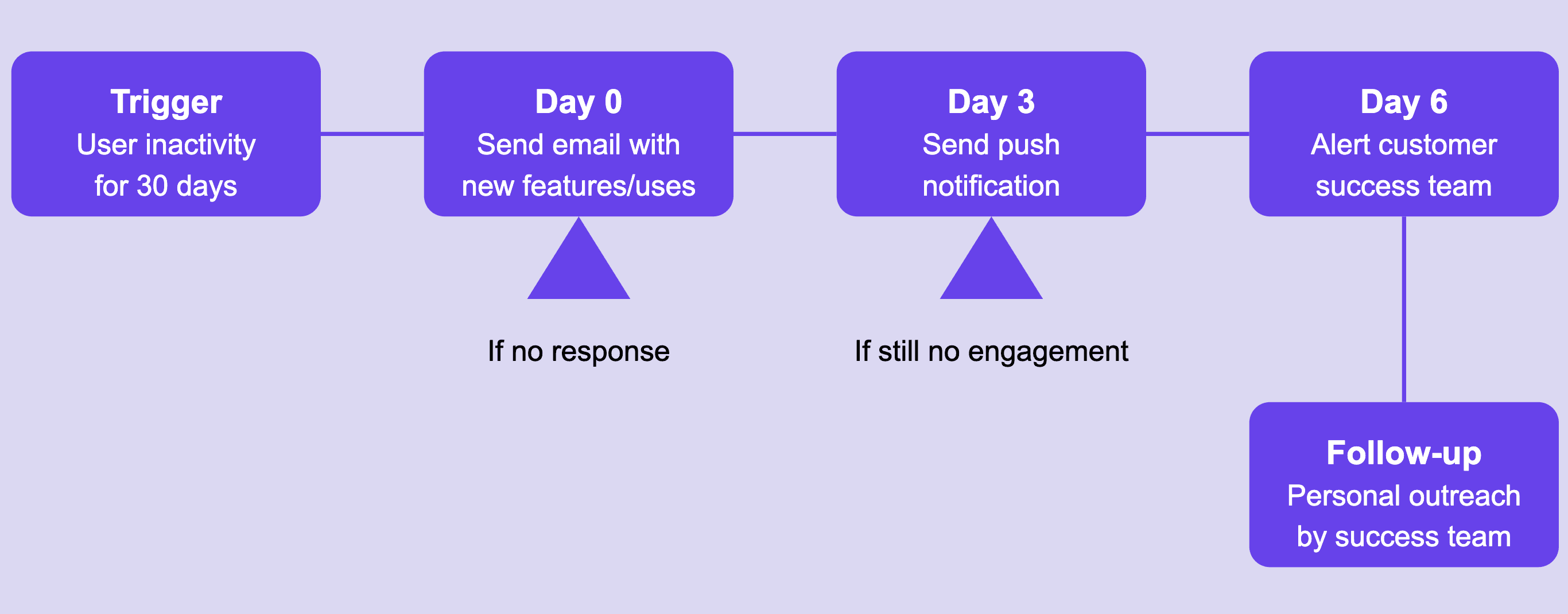
Lifecycle Marketing Workflows to Revolutionize Your PLG SaaS

by
Aleksa Mitrović
Sep 20, 2024
Identify and convert your most valuable users
Sign Up
Mastering lifecycle marketing is crucial for sustainable SaaS growth. Automated Workflows are emerging as a game-changing tool to enhance your lifecycle marketing efforts, ensuring you engage users effectively at every stage of their journey. This guide explores how Automated Workflows can transform your lifecycle marketing strategy and drive unprecedented growth for your SaaS platform.
Lifecycle Marketing: The Foundation of SaaS Success
Lifecycle marketing is the practice of guiding users through their entire journey with your product – from initial awareness to becoming loyal, long-term customers. It's about delivering the right message, to the right user, at the right time, throughout their entire relationship with your brand.
Enhancing Lifecycle Marketing with Automated Workflows

Automated Workflows supercharge your lifecycle marketing efforts by allowing you to create sophisticated, multi-step campaigns that respond dynamically to user behavior and characteristics. Here's how they amplify each stage of the user lifecycle:
Awareness: Automate initial touchpoints to introduce your brand effectively.
Acquisition: Streamline sign-up processes and deliver personalized welcome sequences.
Activation: Guide new users to key features and their first "aha" moment.
Revenue: Nurture users towards paid conversions with targeted messaging.
Retention: Keep users engaged with personalized content and timely interventions.
Referral: Encourage satisfied customers to become advocates for your product.
Key Components of Lifecycle Marketing Workflows
To fully leverage Automated Workflows in your lifecycle marketing strategy, understand these key components:
Triggers: Events that initiate a workflow, aligned with lifecycle stages.
Conditions: Criteria that ensure actions are relevant to the user's current lifecycle stage.
Actions: Steps taken to move users through the lifecycle, from onboarding to advocacy.
Real-World Examples of Lifecycle Marketing Workflows
Let's explore how Automated Workflows can enhance different stages of the user lifecycle:
Early Lifecycle: User Onboarding Sequence

Trigger: New user signs up
Workflow:
Day 0: Welcome email with getting started guide
Day 2: Reminder to complete profile (if not done)
Day 4: Tutorial for key feature (if not used)
Day 7: Feedback survey to gauge initial satisfaction
Mid-Lifecycle: Conversion Campaign for Activated Users

Trigger: User reaches "activated" status
Workflow:
Check if user is on a free plan
If yes, highlight premium features
After 3 days, send limited-time upgrade offer
If upgraded, notify sales team for follow-up
Late Lifecycle: Re-engagement Campaign

Trigger: User inactivity for 30 days
Workflow:
Send email showcasing new features or use cases
If no response, send push notification with personalized content
If still no engagement, alert customer success for personal outreach
Best Practices for Lifecycle Marketing Workflows
To maximize the impact of Automated Workflows on your lifecycle marketing:
Align workflows with specific lifecycle stages and goals
Segment your audience based on their position in the lifecycle
Continuously test and refine workflows based on user progression
Maintain a personal touch in automated communications
Respect user preferences and provide clear opt-out options
Start with simple workflows and increase complexity over time
Coordinate messaging across all marketing channels
Measuring Lifecycle Marketing Success
Gauge the effectiveness of your lifecycle marketing workflows by tracking:
Stage-specific conversion rates (e.g., from free to paid, from inactive to active)
Engagement metrics at each lifecycle stage
User retention rates and churn reduction
Time to value for new users
Lifetime value (LTV) of customers acquired through automated workflows
Conclusion: Mastering the User Lifecycle with Automation
Automated Workflows represent a significant advancement in lifecycle marketing for SaaS businesses. By leveraging automation and data-driven decision making, you can create highly personalized, efficient, and effective campaigns that nurture users through every stage of their journey with your product.
As you implement Automated Workflows in your lifecycle marketing strategy, focus on continuous learning and optimization. Start with key lifecycle stages, measure your results, and gradually expand your use of this powerful tool. With time and experience, you'll be able to create sophisticated automations that not only meet but exceed your lifecycle marketing goals.
Are you ready to revolutionize your SaaS lifecycle marketing with Automated Workflows? The future of personalized, efficient, and highly effective user engagement throughout the entire customer lifecycle awaits!




